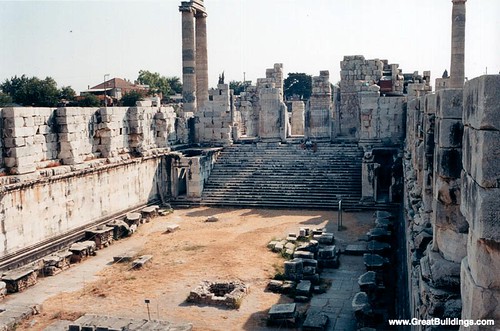
The Peloponnesian War was waged in Ancient Greece and changed the course of history. So how and why did this catastrophic war take place? On one hand there was a fear of the growing power of the Athenians and on the other their rivalry with the Sparta people. The Athenians held the navel superiority and the people of Sparta had tremendous military prowess. Trade also played a part in the beginning of the war. Coupled with this was Persia's interference and siding with the Sparta people. They did this to acquire lands from Greece. At the end of the war when Sparta was victorious Persia got the lands and further weakened the Greek Empire
How did we get the facts of the Peloponnesian War? Thucydides a soldier historian was a general in the war and was forced into exile for 20 years. This allowed him time to observe and record the Peloponnesian War events in a detailed and observant way. His account is the standard one that all historians look to for facts about this war. Thucydides was not only a general in the army but a scholar as well, with a good education. This enabled him to write an account that gives insight into the power struggles that started this war.
The war changed the course of history in several ways. Power changed hands, social statuses changed and the lives of the people were also altered. There were a variety of reasons for this.
- The length of the war: this was a 27 year war with a short period of peace in between. It put a strain on all the states concerned and resulted in poverty and hardship weakening the states. This left them in a vulnerable position which ultimately allowed Greece to be taken over by Macedonia.
- The outcome oligarchy won over democracy: Instead of the peaceful democratic regime that the Athenians promoted a more warlike oligarchy ruled. The ruling of the thirteen tyrants after the war led to further strife and unrest.
- The draining of financial resources: financial resources of all the Greek states were severely taxed and in some cases drained causing widespread poverty and unrest. This undermined the people, plus the population was decreased due to the long war.
- The continuing strife after the collapse of democracy: continuing strife and unrest occurred even after the war finished. This further weakened The Greek states and made the people's plight worse.
As you can see the Peloponnesian War did indeed shape the course of history. It led to the downfall of not only the Athenian power but the whole of Greece. The war in fact paved the way for Greece's eventual capture by Macedonia and the end of the Greek's power and influence in the region. Rarely has a war been fought that had such terrible consequences for the people concerned. There were truly no victors as far as the Greeks were concerned only losers and defeat.
Resources of this article are on The Peloponnesian War [http://www.peloponnesian-war.com] website.